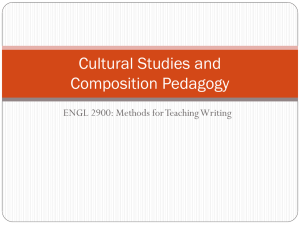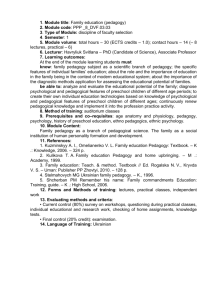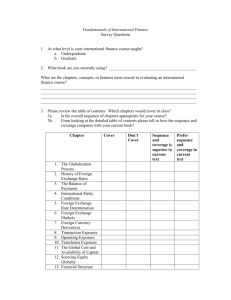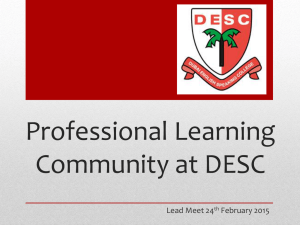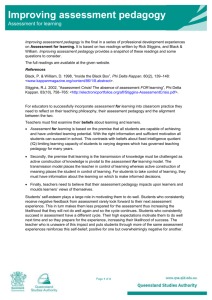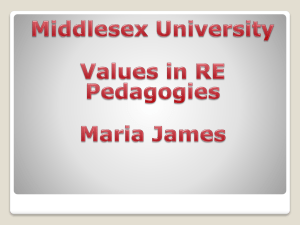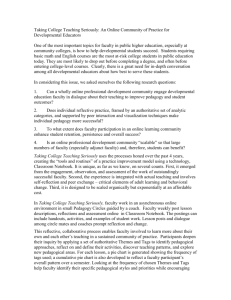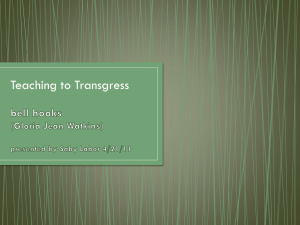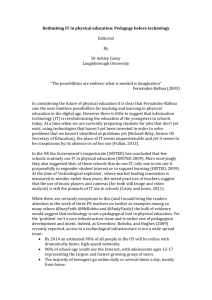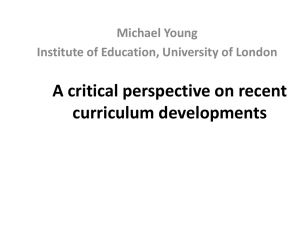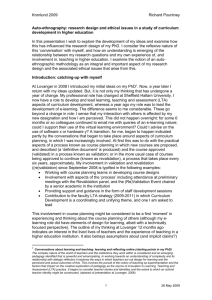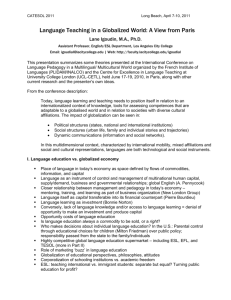Five Key Principles from Critical
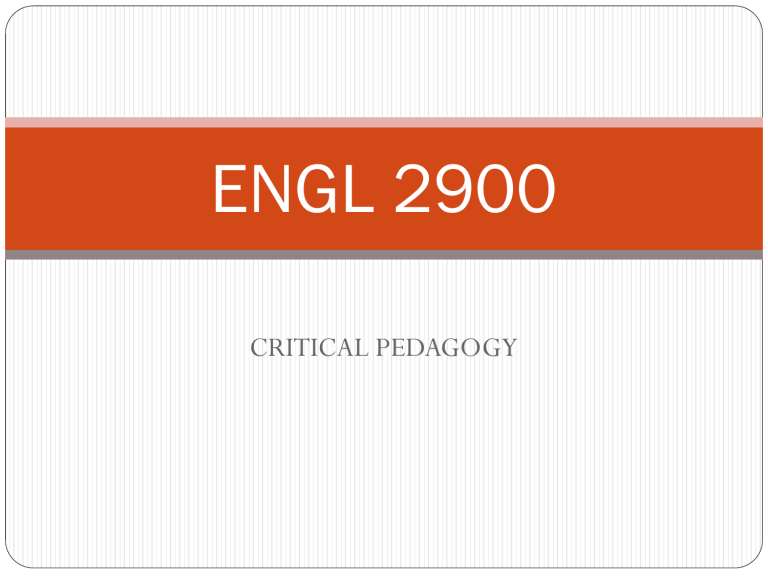
ENGL 2900
CRITICAL PEDAGOGY
DEFINITION:
• The Critical Pedagogy engages students in the analyses of unequal power relations. It suggests that this “inequity” is produced by cultural practices and institutions. It aims to help students develop the tools that will enable them to challenge this inequality
The Focus of the Critical Pedagogy
•
•
Begins in the classrooms where teachers and students learn together.
Allows students to speak with greater authority because they are drawing on knowledge they already possess.
•
•
The Focus of the Critical Pedagogy
Encourages students to respond to texts not just as literary critics, but as politically aware members of a community.
This pedagogy can overlap with feminist and cultural pedagogies, but focuses on explicit commitment to education for citizenship.
Key Players in the Critical Pedagogy
JOHN DEWEY (1859-1952)
Founder of “progressive“ education in the United States.
Rejected teaching practices that positioned students as passive receptacles, such as the rote learning of isolated facts.
Advocated for a pedagogical approach that involved students' active engagement with each other and with the world.
Key Players in the Critical Pedagogy
PAULO FREIRE (1921-1997)
Exiled in 1964 for educating peasants to read both the word and the world of oppressive economic and political domination in which they lived.
Pedagogy of the Oppressed (1970), which contains his famous critique of the “banking concept of education." His book defines today's Critical Pedagogy.
“ BANKING” CONCEPT OF EDUCATION
Students are seen as “receptacles” waiting to be filled with the teacher’s official knowledge; education thus becomes little more than information transfer, “an act of depositing.”
Five Key Principles of Pedagogy Education is…
•
•
•
•
• A conversation where students and teachers pose and solve problems together.
A broadening of the students’ views of reality.
Empowering
Transformative
Political
In Practice
•
•
Assignments may consist of papers or presentations that combine literary analysis with historical research or proposals for change.
Teachers may also ask students to design their own assignments, plan projects and future classes responding in a way they see fit to the issues raised in class.
In Practice
• Studying canonized texts is an important strategy for understanding the values and ideologies of dominant groups at various points in history.
In Practice
•
•
Texts with strong political content, such as memoirs that describe the experiences of people of color, for example, or novels that explore the social and cultural practices of a given community.
These texts can help students to locate similar practices in their own communities, so that they can become active participants in their worlds.
Criticism
Concerned about radical teachers who put “dogma before diversity, politics before craft.”
Writing instructors need to stay with their area of professional expertise.
Radical teachers often refuse to acknowledge that they function primarily as a means to students’ ends. Teachers are ethically bound by students’ own aims even if those aims seem uncomfortably close to elite values.
Rebuttal
It’s important to distinguish between authority which teachers must have and authoritarianism, which is the abuse of power.
Teachers do have more knowledge than their students, but they
re-learn when studying with students.
